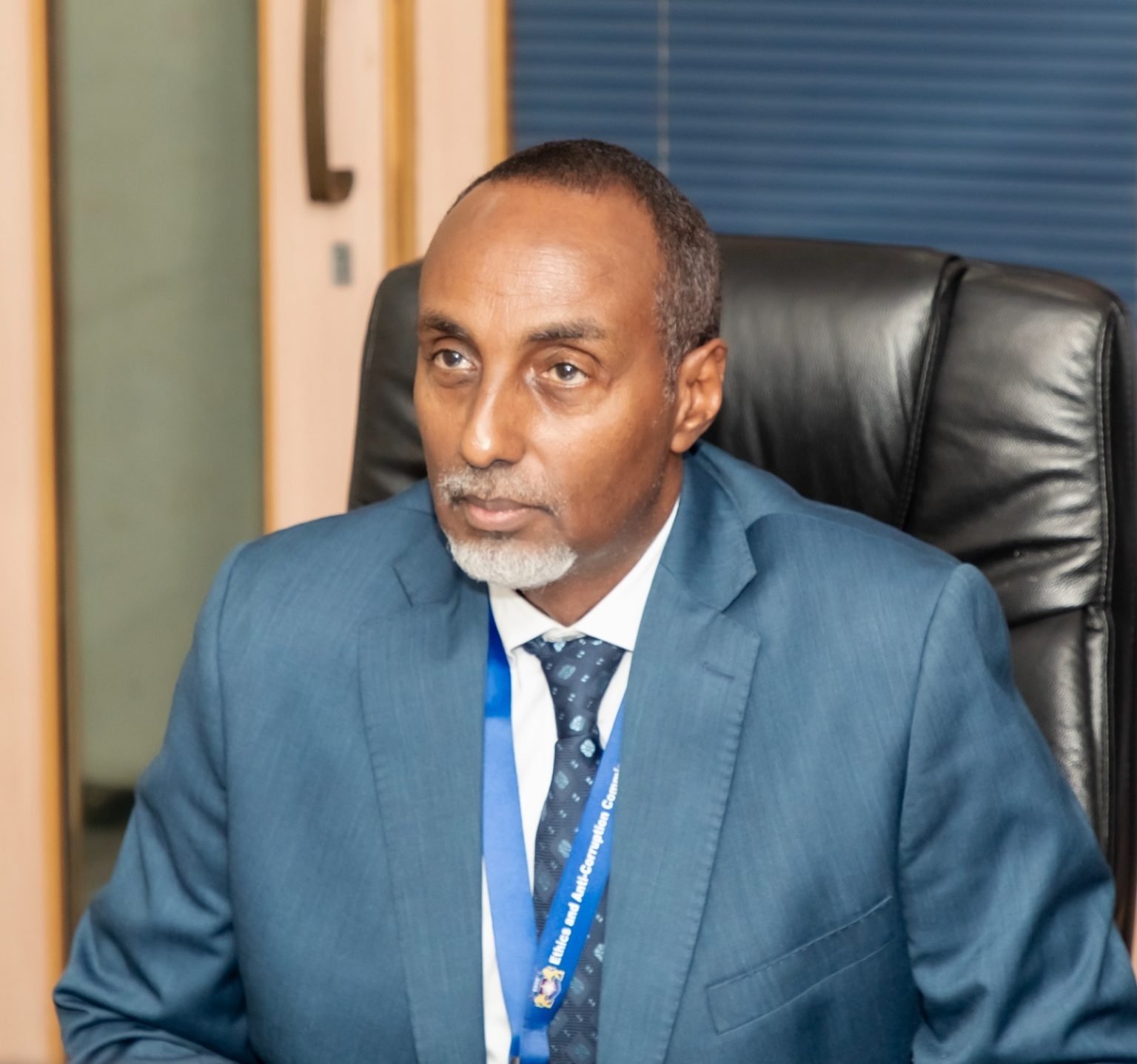News
Did EACC Betray Ruaraka Land Scandal Whistleblower? He Reportedly Regrets The Decision
His sense of betrayal has been compounded by disturbing rumors suggesting that Abdi Mohamed, who was then serving as head of investigations, may have maintained inappropriate contact with Francis Mburu, one of the scandal’s principal suspects.

A troubling narrative of betrayal and broken promises has emerged from the corridors of Kenya’s anti-corruption watchdog, casting a shadow over the Ethics and Anti-Corruption Commission’s handling of one of the country’s most significant land scandals.
Meshack Dehay, the brave whistleblower who came forward with crucial evidence linking top government officials to the Sh3.2 billion Ruaraka land scam, now finds himself consumed by regret and feelings of abandonment.
Sources close to the matter while speaking to a local newspaper, reveal that Dehay, who risked everything to expose the massive fraud, feels profoundly betrayed by EACC boss Abdi Mohamed, the very man who was supposed to protect him.
The whistleblower’s journey began with hope and civic duty.
Armed with a comprehensive dossier detailing how senior government officials orchestrated the multi-billion shilling heist of public land, Dehay approached the EACC with expectations of justice and personal safety.
He was allegedly promised witness protection in exchange for his cooperation, a standard procedure for individuals exposing high-level corruption that could endanger their lives.
However, the promise of protection appears to have been nothing more than empty words.
Instead of finding safety under the EACC’s wing, Dehay now lives in fear, watching helplessly as the very officials he exposed continue to operate with impunity.
His sense of betrayal has been compounded by disturbing rumors suggesting that Abdi Mohamed, who was then serving as head of investigations, may have maintained inappropriate contact with Francis Mburu, one of the scandal’s principal suspects.
The timing of these alleged communications raises serious questions about the integrity of the investigation.
If true, such contact would represent a fundamental breach of investigative protocols and could explain why the case has failed to deliver meaningful justice.
Mburu’s subsequent death has conveniently removed him from the equation, leaving many questions unanswered and justice unserved.
Adding insult to injury, Fred Matiangi, another key figure in the scandal, has not only escaped prosecution but has remarkably reinvented himself as a opposition leader, positioning himself as a champion against the current administration.
This political metamorphosis must be particularly galling for Dehay, who risked everything to expose Matiangi’s alleged role in the land grab.
The whistleblower’s disillusionment reflects a broader crisis of confidence in Kenya’s anti-corruption institutions.
The Ruaraka scandal is not an isolated case of EACC’s questionable handling of high-profile corruption cases.
Former Nairobi Governor Mike Sonko has previously accused Abdi Mohamed of inappropriate conduct, even releasing a video that allegedly showed the EACC boss receiving money in a hotel room.
Such allegations, whether proven or not, contribute to a perception of institutional compromise.
Recent events have only deepened concerns about Mohamed’s judgment and potential conflicts of interest.
The attendance of several governors from North Eastern Kenya at his child’s wedding, despite having pending cases before the EACC, raises questions about the blurring of professional and personal relationships in corruption investigations.
For Dehay, the personal cost of his decision to speak truth to power has been devastating. What began as an act of patriotism has become a source of deep regret.
His experience serves as a cautionary tale for other potential whistleblowers who might consider coming forward with evidence of high-level corruption.
If those who risk everything to expose wrongdoing cannot trust the very institutions meant to protect them, what hope exists for accountability in Kenya’s fight against corruption?
The Ruaraka land scandal, involving billions of shillings in public funds, demanded swift and decisive action.
Instead, it has become another example of how corruption investigations can be compromised, leaving whistleblowers vulnerable and the corrupt protected.
Dehay’s story is not just about one man’s regret; it is a damning indictment of a system that appears to betray those brave enough to defend it.
As Kenya continues to grapple with endemic corruption, the treatment of whistleblowers like Meshack Dehay will determine whether the country can build genuine accountability or will remain trapped in cycles of impunity.
For now, one courageous man’s decision to do the right thing has left him questioning whether justice exists for those who dare to challenge the powerful.
Kenya Insights allows guest blogging, if you want to be published on Kenya’s most authoritative and accurate blog, have an expose, news TIPS, story angles, human interest stories, drop us an email on [email protected] or via Telegram
-

 Grapevine1 week ago
Grapevine1 week agoAlleged Male Lover Claims His Life Is in Danger, Leaks Screenshots and Private Videos Linking SportPesa CEO Ronald Karauri
-

 Lifestyle2 weeks ago
Lifestyle2 weeks agoThe General’s Fall: From Barracks To Bankruptcy As Illness Ravages Karangi’s Memory And Empire
-

 Grapevine4 days ago
Grapevine4 days agoRussian Man’s Secret Sex Recordings Ignite Fury as Questions Mount Over Consent and Easy Pick-Ups in Nairobi
-

 Investigations2 weeks ago
Investigations2 weeks agoEpstein Files: Sultan bin Sulayem Bragged on His Closeness to President Uhuru Then His Firm DP World Controversially Won Port Construction in Kenya, Tanzania
-

 Investigations1 day ago
Investigations1 day agoMulti-Million Dollar Fraud: Three Kenyans Face US Extradition in Massive Cybercrime Conspiracy
-

 Investigations1 week ago
Investigations1 week agoEpstein’s Girlfriend Ghislaine Maxwell Frequently Visited Kenya As Files Reveal Local Secret Links With The Underage Sex Trafficking Ring
-

 News2 weeks ago
News2 weeks agoState Agency Exposes Five Top Names Linked To Poor Building Approvals In Nairobi, Recommends Dismissal After City Hall Probe
-

 Business1 week ago
Business1 week agoM-Gas Pursues Carbon Credit Billions as Koko Networks Wreckage Exposes Market’s Dark Underbelly
















